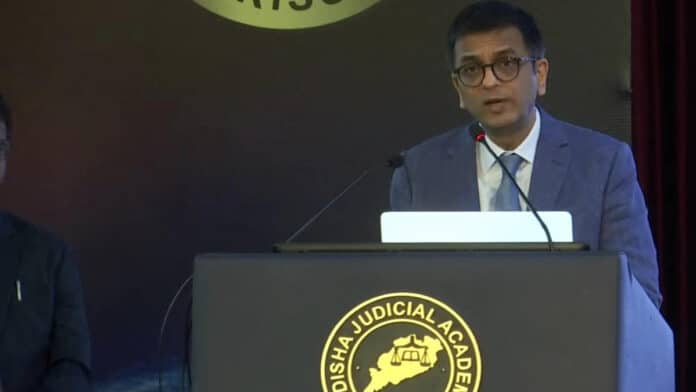The Orissa High Court recently organised a two-day National Conference on Digitization, Paperless Courts and e-Initiatives to explore the possible ways of technology utilisation in the legal system.
The conference, held at the Odisha Judicial Academy in Cuttack, was inaugurated by Chief Justice of India Dr. Justice Dhananjaya Y. Chandrachud, in the presence of other dignitaries.
Implementation of the Action Plan for Phase-III of e-Courts Project of the Supreme Court of India was the main aim of the Conference, with representatives from different High Courts and Government departments being a part of it.

One of the notable initiatives launched at the event was the ‘Neutral Citation for the Indian Judiciary,’ which aims at implementing a uniform methodology for identifying and citing decisions of the orders and judgments of the Supreme Court and High Courts.
This will ensure easy identification and retrieval of case laws, making them accessible to everyone for free through Neutral Citations, rather than just being limited to the subscribers of private law reporters.
Another major highlight of the conference was Chief Justice Chandrachud’s announcement on moving to cloud storage for storing digitized court records, live-streaming recordings, electronic evidence, and establishing paperless courts.
This will not only standardize data security and privacy norms but also help in the digitization of the entire court records, both legacy records and pending cases.
During the conference, delegates also visited the Record Room Digitization Centre (RRDC) of the High Court of Orissa, which is a role model for other High Courts in the field of digitization.
Judges of all the High Courts of the country got an opportunity to study the process undertaken in RRDC and how centuries-old judicial documents are being preserved and showcased in the Museum of Justice.
Overall, the conference provided a platform for exploring several key initiatives that could potentially revolutionize the legal system in India, making it more efficient and accessible to all.







